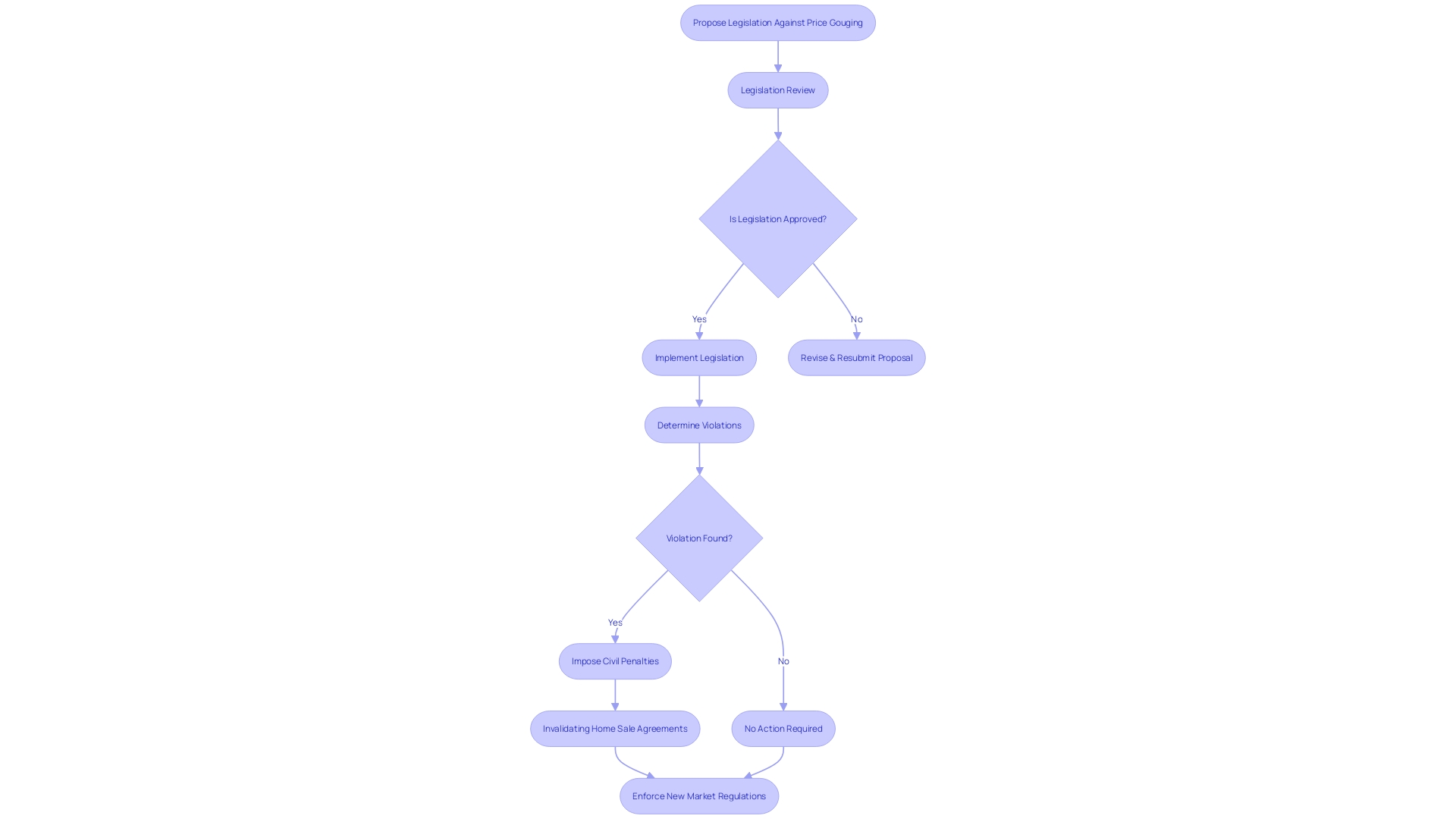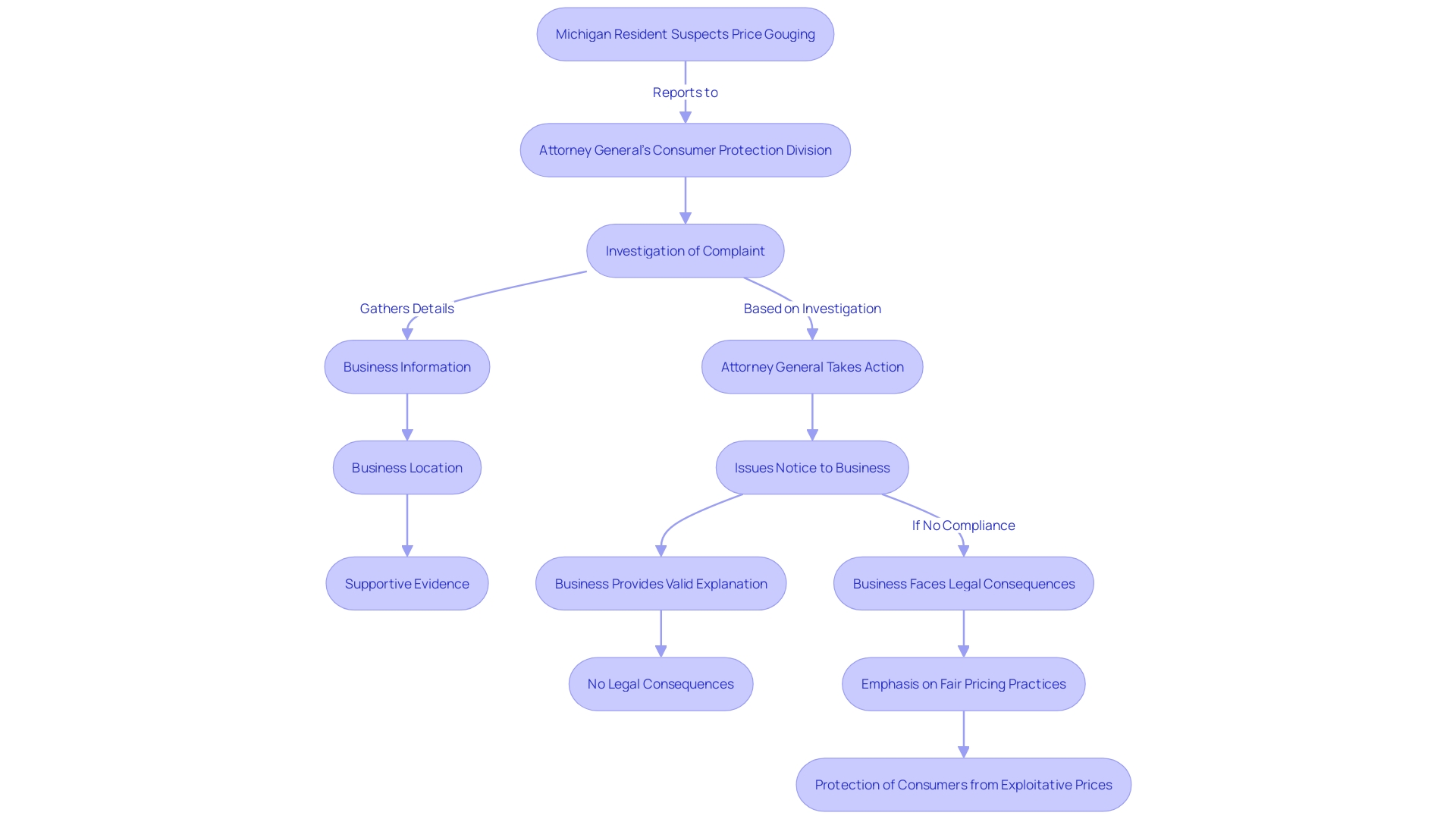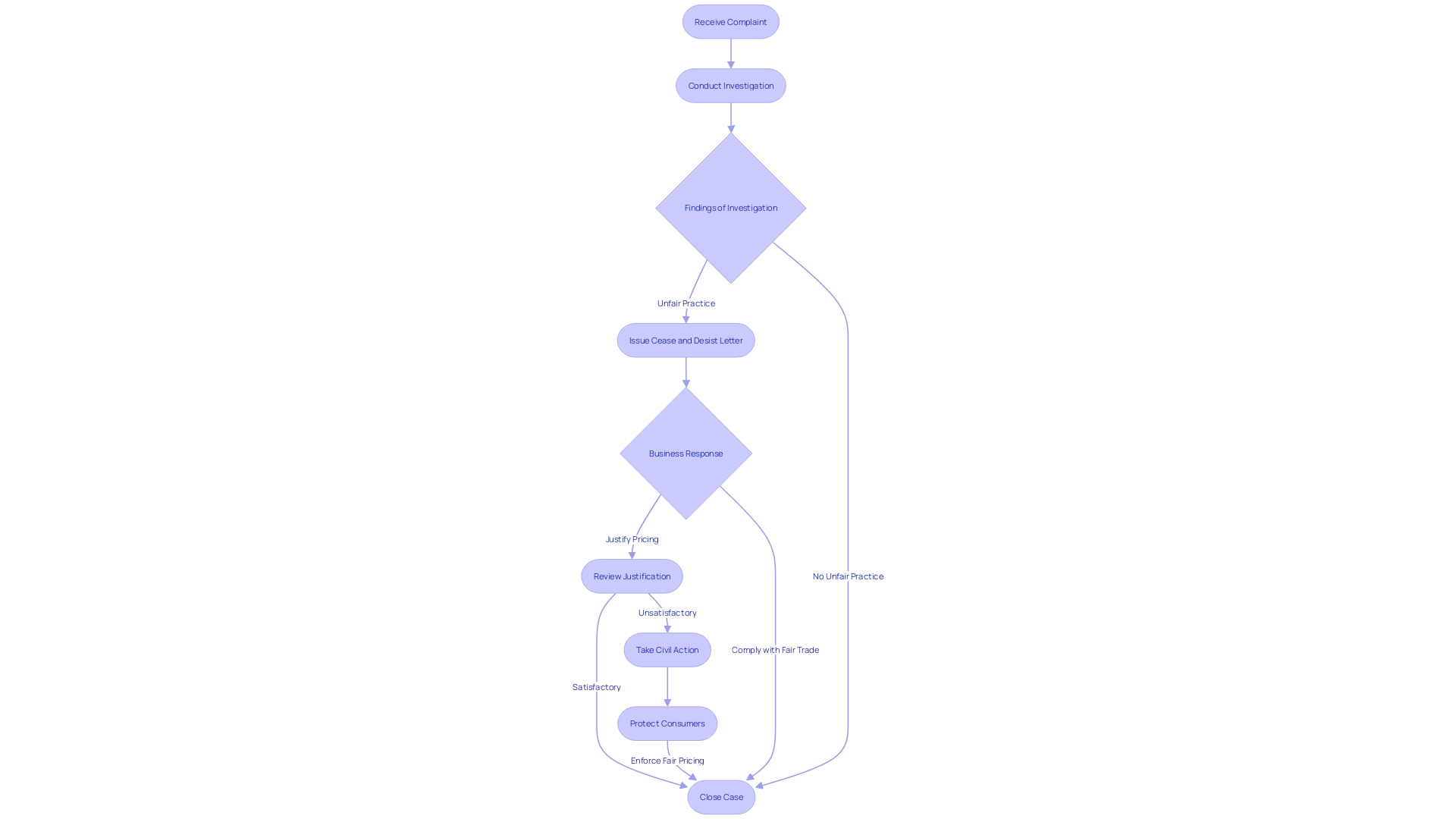Introduction
Price gouging, the act of inflating prices to exorbitant levels during times of crisis, is a grave concern for consumers. While inflation is a natural escalation of prices over time, price gouging takes advantage of vulnerable consumers. This article explores the concept of price gouging, its legal implications under the Michigan Consumer Protection Act, examples of price gouging in Michigan, proposed legislation to strengthen protections, and how to report price gouging.
With a focus on consumer rights and fair market conditions, Michigan is taking a firm stance against price gouging and proposing stricter legislation to combat this unfair practice.
What is Price Gouging?
Price overcharging is often misunderstood as a result of market dynamics, similar to inflation, but it's crucial to differentiate between the two. During times of crises, when individuals are at their most vulnerable, price manipulation occurs by inflating costs to excessive levels, contrasting with inflation which is a general rise in prices over time caused by economic factors such as supply and demand. As per the American Bar Association, when there is a substantial rise in the cost of goods or commodities to a degree that is deemed unreasonable or excessive, and particularly during declared states of emergency, it is closely examined.
During such emergencies, items considered as 'essential consumer goods or services'—which consist of food, water, fuel, gasoline, shelter, and healthcare services—are more vulnerable to excessive pricing. The term 'unconscionably excessive cost' is used to describe a cost point that greatly exceeds the average cost of an item or service in the 60 days prior to a market disruption. Nevertheless, it is crucial to highlight that escalations in cost directly associated with manufacturing or acquiring the goods are usually not classified as excessive pricing.
Legal frameworks are in place to deter this malpractice. Enterprises discovered to be in breach of laws against excessive pricing may be subject to severe consequences, including monetary penalties of $1,000 for each violation, with a maximum limit of $25,000 for numerous offenses within a 24-hour timeframe. These measures are designed to safeguard individuals from predatory pricing strategies and uphold fair market conditions, even during times of scarcity or disaster.
Michigan Consumer Protection Act: Provisions Against Price Gouging
The Michigan Protection Act provides a strong legal structure intended to protect customers from various unfair and misleading business practices, notably including the act of inflating prices. This legislation explicitly identifies gouging as an unfair trade practice, thereby prohibiting businesses from imposing excessive and unjustifiable hikes on goods and services. The legislation not only establishes thorough guidelines but also enforces measures to prevent misuse, guaranteeing that individuals are not exposed to unreasonable cost increases, particularly during crucial moments of necessity or market instability. Importantly, the implementation of the act is vital in retail situations like drop-shipping operations, where intermediaries may increase costs. Additionally, it complements the Scanner Law, which mandates the clear display of pricing on store shelves, thus promoting transparency and fairness in consumer transactions.
Defining Price Gouging Under Michigan Law
In the context of Michigan's economic landscape, excessive charging has been a subject of intense scrutiny, particularly in emergency situations. It is characterized by significantly elevated costs that deviate markedly from pre-crisis norms, taking into account the type of product or service, prevailing market conditions, and legitimate cost increases. A clear example of this problem happened when Michigan Attorney General Dana Nessel issued a cease and desist notice to a gas station near the Metro Detroit Airport, suspecting unjustified price increases potentially taking advantage of customers. The notice emphasized that factors such as location alone are not enough as reasons for excessive pricing, even if complaints from customers indicate otherwise. This gas station was given a deadline to provide a valid explanation or face potential legal action, highlighting the state's dedication to safeguarding the rights of customers under the Michigan Consumer Protection Act.
Nationwide, similar legislative efforts echo Michigan's stance, with proposed federal laws seeking to curb corporate profiteering in times of crisis. Despite criticisms from some quarters, these initiatives are modeled after existing state laws that have shown efficacy without undermining the capitalist system, as evidenced by Texas' business-friendly reputation coexisting with its anti-price gouging legislation. Furthermore, the widespread existence of price-inflation regulations in over 37 states and the District of Columbia, which authorize attorneys general to take prompt action, indicates a broad acknowledgment of the necessity to shield customers from exploitative costs. The term 'greedflation' has been coined to describe the phenomenon where companies exploit inflationary periods to increase profits disproportionately, as shown by a 75% rise in corporate profits over a two-year span, outpacing the rate of inflation fivefold, burdening consumers like Erin Wiggle, a Pennsylvania resident who noted persistent cost increases despite easing supply chain issues. These advancements emphasize an increasing consciousness and resistance to exploitation of costs, strengthening the significance of regulatory mechanisms to guarantee equitable pricing practices.
Examples of Price Gouging in Michigan
Reports of excessive pricing in Michigan during times of crisis have brought attention to the substantial increase in expenses for essentials like food, water, medical supplies, gasoline, and housing. This occurrence, marked by costs that soar far above typical values, is a subject of serious worry for individuals confronting urgent circumstances. The concept of gouging is distinct from inflation; while the latter is an economic principle involving a gradual increase in costs due to the interplay of supply and demand, gouging occurs when sellers take unfair advantage of consumers by drastically increasing prices during an emergency or crisis. The American Bar Association defines it as charging an unreasonable or excessive cost for goods or services, particularly during a declared state of emergency. It frequently appears on a smaller magnitude but has a significant effect, such as when necessary items are sold at excessive costs after a natural calamity. Legal frameworks have been established to prevent such practices, with 38 states having laws that empower attorneys general to take action against exorbitant cost increases during emergencies. Penalties for violating these statutes can be severe, with civil penalties reaching up to $1,000 per violation and a cumulative sum of $25,000 for multiple infractions within a 24-hour period. These laws are created to safeguard the health, safety, and welfare of the public by guaranteeing that essential goods and services stay obtainable at equitable costs during periods when they are most required.
Proposed Legislation to Strengthen Price Gouging Protections
Michigan is firmly opposing gouging, showing an increasing worry over the practice during periods of market disruption. The state proposes to implement more rigid legislation, which will impose civil penalties of up to $1,000 for each violation, potentially accumulating to a staggering $25,000 for multiple infringements within a single day. This legislative effort establishes 'necessary goods or services for consumers,' such as food, water, fuel, and health care, as crucial for the welfare of the general population and elucidates the standards for determining an 'unreasonably exorbitant cost.' Significantly, the increments unrelated to the actual costs of goods or services will not be tolerated. This arises in reaction to situations where production costs have decreased, yet individuals continue to face elevated prices, a disparity partly attributed to corporate price gouging. Furthermore, the legislation is intended to invalidate home sale agreements that fail to meet specific requirements, thereby safeguarding individuals from unjust real estate practices. These measures are reflective of a broader national dialogue, as similar laws against price-gauging exist in 37 states and the District of Columbia. In support of consumer rights, federal legislation is also being considered to empower the government to combat these unfair cost practices, mirroring successful state-level statutes.

How to Report Price Gouging in Michigan
Michigan residents who come across significant cost increases, especially under suspicious circumstances, have an option to contest potential price gouging. This was exemplified in a recent action taken by Michigan Attorney General Dana Nessel, who issued a notice to a gas station near the Metro Detroit Airport. The station, conveniently situated for travelers and car renters, was given until January 8 to provide a valid explanation for its charges or face possible legal consequences. The case is a stark reminder that businesses must adhere to fair pricing practices, as outlined in the Michigan Consumer Protection Act, which prohibits exploiting consumers through inflated costs.
The difference between inflation - a regular market-driven increase in costs - and gouging - a deliberate hike in costs exploiting a situation - can be nuanced. Nevertheless, when costs escalate excessively without a reasonable connection to market dynamics, it indicates potential foul play. In the case of drop-shipping, for example, prices are often increased because of the profit margin of the middleman, which is lawful but can pose difficulties for customers to determine reasonable costs.
Michigan's commitment to protecting consumers is reflected in the broader context of the nation, where 37 states and the District of Columbia have anti-price-gouging statutes. These laws empower state attorneys general to investigate and address exploitative price practices, particularly during emergencies. For those in Michigan suspecting unfair cost, lodging a complaint with the Attorney General's Consumer Protection Division is a concrete step towards addressing and rectifying such grievances. The division's online portal simplifies the process, enabling citizens to submit details of the offending business, its location, and any supportive evidence to facilitate prompt investigation and action.

Penalties for Price Gouging in Michigan
In Michigan, enforcement of anti-price gouging measures is a serious affair, particularly under the Michigan Consumer Protection Act. Instances of unfair practices related to cost, such as a gas station charging significantly more than nearby competitors or a hotel raising rates during a power outage, have prompted decisive responses from authorities. For instance, a gas station received a cease and desist letter for charging significantly higher than the average, and a hotel agreed to reimburse guests after being accused of inflated rates during an emergency. Both cases highlight Michigan's commitment to protecting consumers from exorbitant price increases, especially during critical times such as holidays or emergencies. The state's Attorney General has made it clear that businesses have a responsibility to maintain fair cost, and failure to comply can lead to civil actions, including fines, restitution, and possibly injunctive relief. Moreover, businesses are given the opportunity to justify their pricing or to voluntarily agree to compliance measures, thereby avoiding litigation. This approach not only ensures consumer protection but also offers a chance for businesses to align with fair trade practices.

Conclusion
In conclusion, price gouging is the act of inflating prices to exorbitant levels during times of crisis, taking advantage of vulnerable consumers. Michigan's robust legal framework, including the Michigan Consumer Protection Act, prohibits unjustifiable price hikes and aims to protect consumers from price gouging. The state is taking a firm stance against this unfair practice and proposing stricter legislation to combat it.
Instances of price gouging in Michigan during emergencies have prompted decisive responses from authorities, demonstrating the state's commitment to consumer protection. Violators of price gouging statutes may face stiff penalties, ensuring fair market conditions and safeguarding consumers. Similar efforts are being made nationwide to curb corporate profiteering during crises.
Michigan residents have the ability to challenge potential price gouging by reporting suspicious price hikes to the Attorney General's Consumer Protection Division. This reporting is crucial in addressing grievances and rectifying unfair practices. Michigan's commitment to consumer protection aligns with the broader national context, where laws against price gouging exist in 37 states and the District of Columbia.
To strengthen price gouging protections, Michigan proposes stricter legislation that imposes substantial civil penalties and clarifies criteria for what constitutes an unconscionably excessive price. The proposed legislation also aims to nullify unfair real estate practices and address disparities between production costs and consumer prices. These measures are part of broader national efforts to shield consumers from opportunistic pricing.
Enforcement of anti-price gouging measures in Michigan is taken seriously, with authorities responding decisively to unfair pricing practices. Businesses are expected to maintain fair pricing, with non-compliance resulting in civil actions, fines, restitution, and injunctive relief. This approach ensures consumer protection and encourages businesses to align with fair trade practices.
In summary, Michigan is dedicated to protecting consumers from price gouging and is proposing stricter legislation to combat this unfair practice. The state's legal framework and enforcement actions aim to maintain fair market conditions and ensure that essential goods and services remain accessible at reasonable prices, even during times of crisis.




